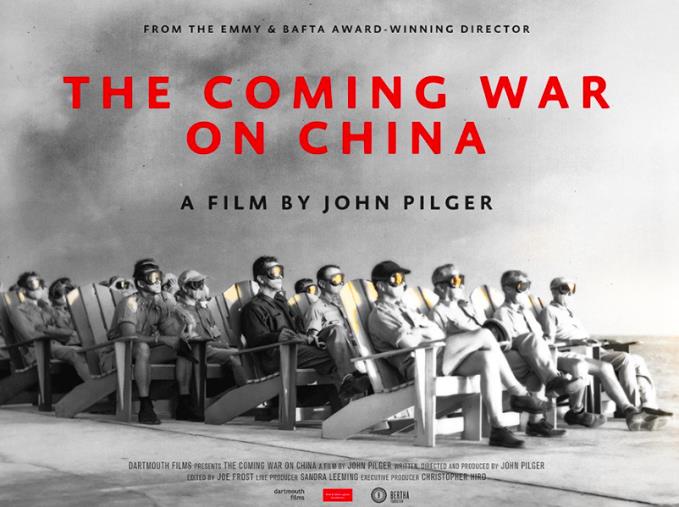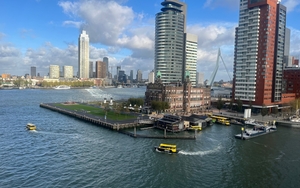A NUCLEAR war between the United States and China is not only imaginable but a "contingency", says the Pentagon.
It made its declaration before the election of The Donald - a man who, John Pilger contended, earlier this year, was less dangerous than Hilary Clinton.
We in the West still prefer to see Asia in terms of its usefulness or hostility to us, or its failings by our standards, which we promote as enlightened
To cheer us up some more as the 2016 annus horriblus (depending on your point of view) draws to a close - The Coming War On China arrives in Liverpool for one night only next month.
It's the first chance the North West will get to see Pilger's brand new film, which premieres the night before in London - and will be followed by a live transmission Q&A with the man himself.
Billed as "his most urgent work to date... both a warning and an inspiring story of resistance", The Coming War On China is the 60th film by the 77-year-old documentary hero.
Made over two years across five potential flashpoints in Asia and the Pacific, it reveals what it calls the build-up to war on more than 400 US military bases that encircle China in a "perfect noose".

And lest we forget the US President Elect, the film will also include a segment that is one of the first cinematic responses to Trump's victory, and the subsequent consequences for US foreign policy and relations with China.
Pilger says: “The aim of this film is to break a silence. A new cold war is under way along with the drumbeat to war, this time with the real possibility of nuclear weapons. ‘The Coming War’ is also a film about the human spirit and the rise of an extraordinary resistance in faraway places.
Using rare archive footage and interviews with witnesses, Pilger’s film discloses America’s "secret history" in the region – the destruction wrought by the equivalent of one Hiroshima every day for 12 years, and the top secret ‘Project 4.1’ that it says made guinea pigs of the population of the Marshall Islands.
He says: “On the island of Okinawa, home to 32 US bases, the population is challenging the greatest military power in the world. On the Korean island of Jeju, villagers block the entrance to a new nuclear naval base, with its missiles aimed at China.”
In key interviews from Pentagon war planners to members of China’s confident new political class - who, he says, rarely feature in Western reports, Pilger’s film challenges the notion and propaganda of China as a new "enemy".
He tells of arriving at Shanghai for the first time in a generation. "(Back) then, Mao Zedong had recently died, and the cities seemed dark places, in which foreboding and expectation competed. Within a few years, Deng Xiopeng, the ‘man who changed China’, was the ‘paramount leader’. Nothing prepared me for the astonishing changes today.
"‘I make the joke,' says the Shanghai social scientist Eric Li in the film, ‘In America you can change political parties, but you can’t change the policies. In China you cannot change the party, but you can change policies. The political changes that have taken place in China this past 66 years have been wider and broader and greater than probably any other major country in living memory’".
 Bikini Atoll
Bikini Atoll Pilger says: "This is one of a number of views from within China’s new and confident political class that make a rare appearance in a western documentary. In Western ‘media culture’, these revealing voices are generally excluded, because they do not fit the received wisdom, a form of censorship by omission. Like the imperial Edwardians, we in the West still prefer to see Asia in terms of its usefulness or hostility to us, or its failings by our standards, which we promote as enlightened. The Coming War on China is about the imposition of this sense of superiority and its reckless power."
Pilger has won an Emmy, a BAFTA, a Grierson, a Royal Television Society award and numerous other accolades for his documentaries, not to mention the United Nations Association Media Peace Prize and Australia’s international human rights award, the Sydney Peace Prize, “for “enabling the voices of the powerless to be heard” and “for fearless challenges to censorship in any form”
Yet The Coming War on China is partly crowd funded. Says Pilger: Ten years ago, a film of mine could be made in six months, even less. The main work was the research, the journalism. Whenever I felt confident I had the basis of a story, I would go to the ITV network in the UK and seek a broadcast commission. If that was forthcoming, ITV would fund the production. The difference now is that I, the film-maker, must raise most of the production money. Also, my documentaries have changed considerably in recent years. They are now made for the cinema as well as TV, and for the internet."
The film is also supported by ITV, the Bertha Foundation, and the Reva and David Logan Foundation, and will be screend on its TV network the following night.
*The Coming War On China, 12a, FACT, Wood Street, Monday December 5, 8pm, followed by a post-screening satellite Q&A with John Pilger from Picturehouse Central, London. ITV at 10:40pm, Tuesday December 6. Tickets here.













